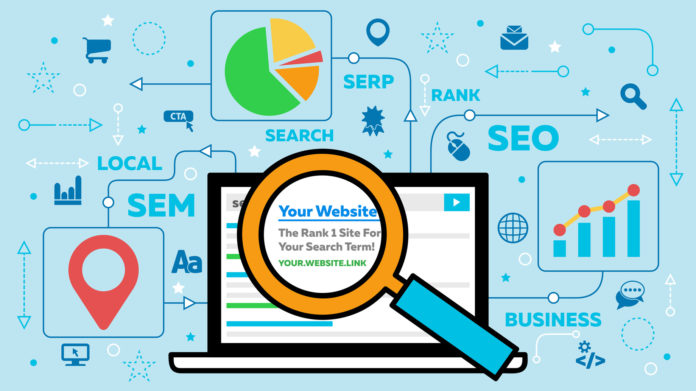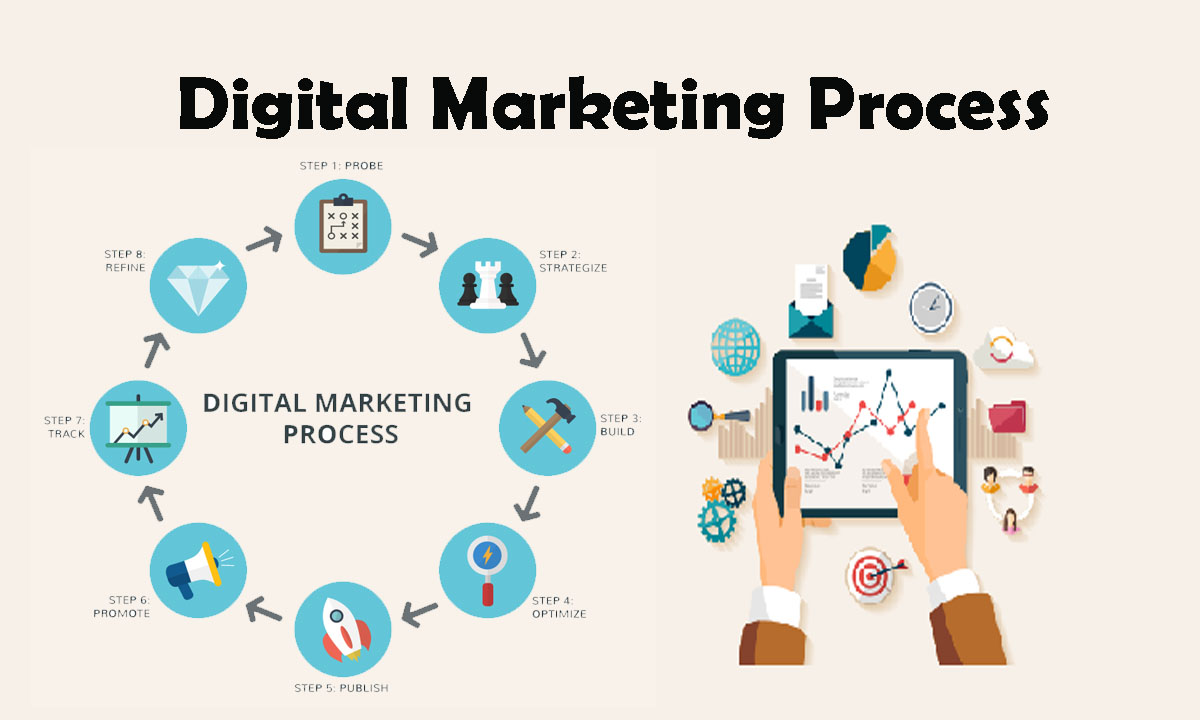SEO Ranking Factors You Need to Rank #1 (2019)
A list of the most important SEO ranking factors a beginner should know. Google uses about 200 various factors to rank a site.
Do you understand this past year, the SEO aspects which will make a difference? Search engine optimization needs keep changing, and it can be tough to stay informed about the latest developments.
But if you would like your website you need to be in the know.
Well-optimized websites get an increasing number of traffic with time, which means more prospects and revenue. Nobody will have the ability to discover your website, saying you neglect should SEO.
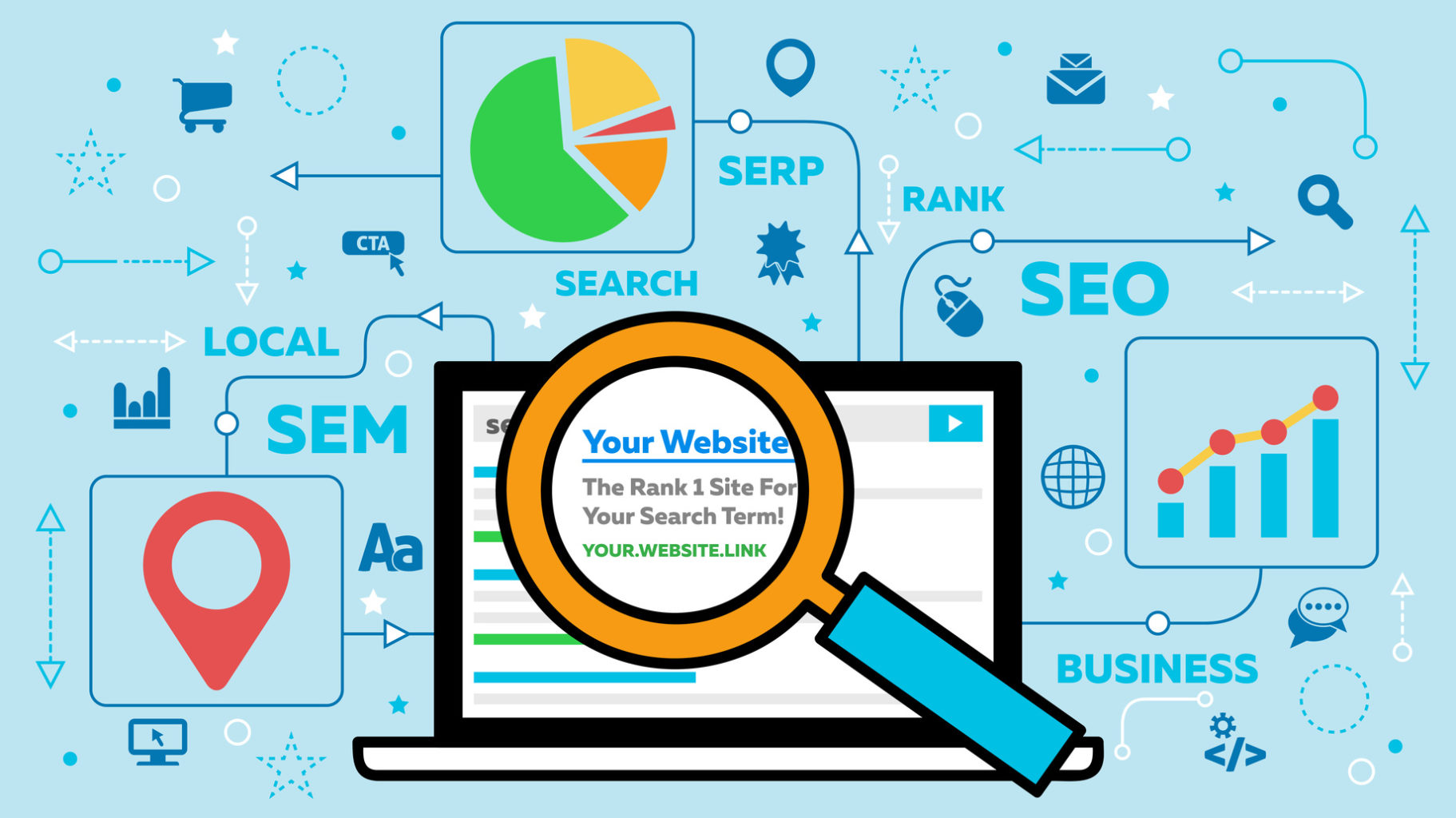
List of Most Important SEO Ranking Factors in 2019
1. A Secure and Accessible Website
Unsurprisingly, the first of our SEO rank factors need to do with having the right sort of URL. That’s a URL that Google’s bots creep and can quickly reach.
Google has to be able to stop by with the URL and look at the page content to start to comprehend what that page is about. You’ll need to help out the bots:
- A robots.txt file that informs Google where it can and can’t look for your website info
- A site, that lists all your pages. If you are running a WordPress site, you may establish a sitemap via Yoast SEO.
With more changes on the horizon to specifically flag websites as protected or not protected, that signal will influence people’ perception of your site, and potential search engine rank. If you haven’t yet enabled SSL security on your website, now’s the moment.
2. Page Speed
Page speed was cited as one of the leading SEO ranking factors for ages. Google would like to improve consumers’ experience of the web, and web pages that are fast-loading will do that.
Google recently announced a search engine algorithm update focused on cellular page rate.
The”speed update” will begin to affect sites from July 2018, so if your website doesn’t load quickly on mobile devices, then it could be penalised.
Use Google’s mobile testing tool to see how your site stacks up.
3. Mobile Friendliness
Mobile-friendliness is another major SEO ranking factor, while we are on the topic of mobile. More people utilise mobile devices than desktops to access the net, and that’s one reason there have been changes in how Google ranks search results.
Google’s mobile-first index is now a fact, so it is drawing its outcomes from mobile-optimized sites first, instead of sites geared to desktop computers. If your website isn’t mobile-optimized you risk being outside in the cold, in SEO terms at least.
Many will allow you to lay the basis for a fantastic search engine rank; however, when people land on your site, you also have to look after consumer experience.
4. Domain Age, URL and Authority
Did you know that nearly 60 per cent of the sites which have a top ten Google search ranking are longer or three years old? Data from an Ahrefs study of 2 million pages indicates that very few sites less than a year old achieve that rank. Therefore, if you’ve had your site for some time, and have optimized it with the tips in this guide, that’s an advantage.
The domain name things. Though Google has penalised exact-match domains (the ones where the target keyword is in the URL), that penalty is usually for spammy websites with thin content.
Other research shows that exact-match domains which are regarded as more relevant, beneficial, and high quality can observe a ranking boost for this. But if you currently have a secure website, you do not need to go searching for a domain name for your company; focus and maximize the heck out of it!
Authority issues when it comes to search engine ranking factors. As you’ll notice, that is usually a combination of fantastic content (see the next tip) and off-page SEO signs like inbound links and societal shares.
Moz has codified this into page authority and domain authority scores, both ranked from 0 to 100, which inform you just how likely a particular page or domain is to rank in search results.
You can test domain authority or page authority with Open Website Explorer. Just plug your URL into the on-site search box, and you’ll find a report demonstrating domain authority, page authority, established links and fresh links.
5. Optimized Content
We’ve talked a lot about content within this guide to Google SEO factors. That’s because it is one of Google’s best three search rank factors (others are hyperlinks and RankBrain, which we will get to in a while). Now let’s dig down and find out exactly what content for SEO means.
As we said in our keyword research guide, Google’s search engine relies on keywords. These are phrases and the words when they’re looking for information, searchers use. They’re also phrases and the words that describe the subjects. Those will match up.
That’s why it’s so important to use keywords in your content.
One negative ranking factor to know about is duplicate content. For SEO, new, original content is the best thing. And if you have content that’s like, tell Google which one should be rated as most authoritative by using canonical URLs.
Knowing Search Intent for Content Optimization
When optimizing articles search intent is also important.
Suppose you have identified”Florida real estate” as a keyword that you wish to rank for. You may feel that writing content for those is a good idea. But if the people searching for this term are realtors, then your content won’t meet their needs, and your page will not rank.
It’s apparent what folks are searching for. For instance, should they use the term”compare”, they’re likely trying to decide on purchasing a product. And if they use the term”purchase”, then they’re seeking to create a buy.
Will alter Based on if they’re looking to:
- Find a particular site (navigational)
- receive the answer to a question (informational)
- get advice before making a purchase (investigational)
- make a buy (transactional)
Using Video to Improve SEO Ranking
By 2021, according to Cisco, video will represent a whopping 80% of online traffic.
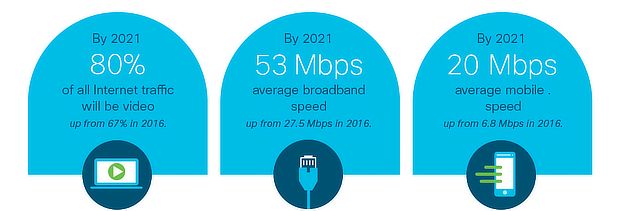
6. Technical SEO
We said earlier that getting the code right is one factor of optimizing content for better search engine positions. Here is a Few of the aspects you Want to Check-in:
- Use keyword phrases in page titles, which is where Google first seems to ascertain which content is relevant to that search. You will see the page name as the very first line of a search result entry.
- Use header tags to show content hierarchy. Then you use h2 or h3 for subheads if your title is organised as h1.
- Meta descriptions used to max out at 160 characters, even though there are recent indications that they are. Google also has an image search, which is another way for folks to find your content.
- Where it is appropriate, use schema markup to inform Google what sort of content you are producing. This may assist your articles to look in wealthy card entries other than answer boxes.
7. User Experience (RankBrain)
For a while today, Google’s been utilizing artificial intelligence to better rank web pages. It calls which signal RankBrain. These are:
- Clickthrough rate — the percentage of people who click to come to your website following an entrance comes up in search results.
- Bounce rate, particularly pogosticking — the per cent of people who bounce away again, which means your site didn’t give them what they wanted.
- Dwell time — just how long they remain on your site after they have arrived.
8. Links
The internet is built on hyperlinks, so obviously hyperlinks are an SEO rank signal, as we said at the start. There are three kinds of hyperlinks to think about:
- Inbound links
- Outbound links
- Internal links
Google uses inbound links as a single way to help determine how relevant and important your content is.
The best case scenario is where a website involves a relevant link to your site in a piece of their content. If a person with an excellent website link for it, Consequently, if the Content Marketing Institute carries a link to a content source, that will be sensed.
You want to have a few links as possible from quality domain names. It is possible to discover your links that are inbound in SEMRush or among the keyword research tools shared in this guide.
At the same time, you would like to demonstrate to linking to important, that you’re creating quality content for your visitors, authoritative sites in your market is a fantastic thing.
And lastly, linking to your content can help tie pages together to get your customers and both Google, making each page more valuable. That helps people find another page, and moves on some of the authority, In case you’ve got an authoritative site and connect to some other page on your website. That will help that second page boost its search engine ranking.
9. Social Signals
That’s another indication that it’s valuable If folks share your articles on networks. Cognitive SEO’s analysis of 23 million shares found a definitive link between social shares and search engine ranking.
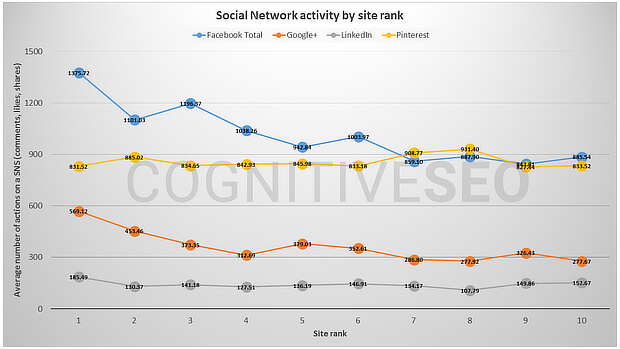
Google’s official word is that societal shares are not a direct rank factor. Links out of Twitter or Facebook are not counted the same as hyperlinks from sites that were authoritative.
There’s no denying that the highest rank pages in Google search results have a lot of shares.
That’s probably because the more your articles are shared, the more folks will see it and opt to link into it.
10. Real Business Information
This tip is important for businesses targeting particular local areas. The presence or absence of business information is one of the most crucial local SEO ranking factors.
So it’s important to look after areas like:
- NAP – name, address, phone number
- Business listings on Google My Business and Facebook
- Reviews on both those sites and on relevant directories like Yelp and others
- The right local search terms






